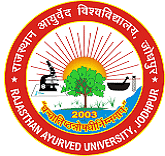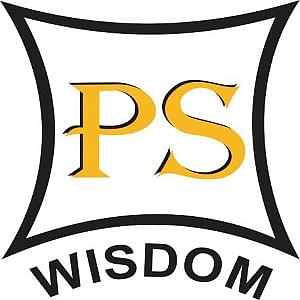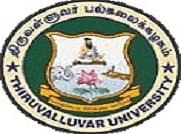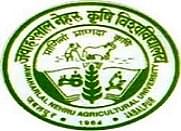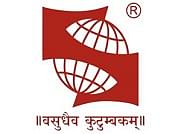Introduction
about Ph. D in Culinary Arts
A PhD in Culinary Arts from best college is an
advanced academic degree designed for individuals who are passionate about
culinary arts and aspire to make significant contributions to the field through
research, education, and innovation. This doctoral program goes beyond
traditional culinary education to explore the cultural, historical, scientific,
and social aspects of food and cuisine. It equips students with advanced
culinary skills, research methodologies, and theoretical knowledge to address
complex issues in the culinary world and shape its future.
Program Overview
A PhD in Culinary Arts
combines theoretical coursework, practical culinary training, research
projects, and a dissertation. The program delves into various facets of
culinary arts, including culinary techniques, food science, gastronomy,
nutrition, sustainability, food culture, and culinary entrepreneurship. Through
interdisciplinary study and research, students gain a deep understanding of the
multifaceted nature of food and its impact on society.
Objectives of the Program
Advanced Culinary Skills: Develop mastery in culinary techniques,
creativity, and innovation to push the boundaries of culinary artistry.
Research Excellence: Conduct original research that contributes
new knowledge to the field of culinary arts, gastronomy, and food studies.
Culinary Education: Prepare future educators and leaders in
culinary education, hospitality management, and related fields.
Culinary Entrepreneurship: Foster entrepreneurial thinking and
leadership skills to drive innovation and sustainable practices in the culinary
industry.
Cultural Understanding: Explore the cultural, historical, and
sociological dimensions of food and cuisine, fostering cross-cultural
appreciation and awareness.
Core Areas of Study
Culinary Techniques and Innovation:
Advanced training in
culinary skills, techniques, and creative expression.
Exploration of contemporary
culinary trends, ingredient sourcing, and menu development.
Food Science and Nutrition:
Study of food chemistry,
food safety, food preservation, and nutritional science.
Understanding the chemical
and physical properties of ingredients and their effects on food quality.
Gastronomy and Food Culture:
Examination of food culture,
gastronomic traditions, and culinary heritage.
Analysis of the
socio-cultural significance of food, rituals, and foodways.
Research Methodologies:
Training in qualitative and
quantitative research methods.
Courses on research design,
data analysis, literature review, and academic writing.
Sustainability and Food Systems:
Exploration of sustainable
food practices, ethical sourcing, and environmental stewardship.
Strategies for promoting
sustainability in culinary operations and food supply chains.
Culinary Entrepreneurship and Management:
Entrepreneurial skills
development, business planning, and strategic management in the culinary
industry.
Innovation in culinary
business models, food startups, and culinary tourism ventures.
Dissertation
The centerpiece of the PhD
program is the dissertation, an original research project that contributes new
insights to the field of culinary arts. The dissertation process involves:
Proposal Development: Formulating a research question, conducting
a comprehensive literature review, and outlining the research methodology.
Data Collection and Analysis: Gathering data through primary or secondary
sources and analyzing it using appropriate research methods.
Writing and Defense: Documenting the research findings in a
dissertation and defending it before a committee of experts.
Career Prospects
Graduates of a PhD in
Culinary Arts can pursue diverse career paths, including:
Academic Positions: Teaching and research roles at universities,
culinary schools, and research institutions.
Culinary Education: Curriculum development, program management,
and faculty leadership in culinary education.
Culinary Research: Research and development positions in food
companies, culinary labs, and research organizations.
Culinary Entrepreneurship: Culinary startups, food product development,
and culinary consulting.
Culinary Leadership: Executive chef positions, culinary
management, and leadership roles in hospitality and foodservice organizations.
Benefits of a PhD in
Culinary Arts
Expertise and Recognition: Gain deep knowledge and expertise in
culinary arts, positioning yourself as a thought leader and expert in the
field.
Research Contributions: Make significant contributions to culinary
research, innovation, and scholarship.
Educational Impact: Inspire and educate future generations of
culinary professionals through teaching, mentorship, and curriculum
development.
Entrepreneurial Opportunities: Create and lead innovative culinary
ventures, contributing to the growth and sustainability of the culinary
industry.
Cultural Preservation: Preserve and promote culinary heritage,
traditions, and food cultures through research, education, and advocacy.
What is
admission process for Ph. D in Culinary Arts ?
The admission process for a
PhD in Culinary Arts varies depending on the institution offering the program.
However, here is a general overview of the typical admission process:
1. Research and Preparation
Research Programs: Explore universities and institutions
offering a PhD in Culinary Arts. Consider factors such as faculty expertise,
research focus, resources, and program reputation.
Review Requirements: Carefully review the admission requirements,
including academic qualifications, prerequisites, application materials, and
deadlines.
2. Meet Eligibility Criteria
Educational Background: Most programs require applicants to hold a
master’s degree in Culinary Arts, Hospitality Management, Food Science,
Nutrition, or a related field. Some programs may consider applicants with a
bachelor’s degree if they have extensive professional experience.
Academic Performance: A strong academic record, typically with a
minimum GPA requirement, is often necessary. The specific GPA requirement
varies by institution.
Professional Experience: Relevant professional experience in the
culinary industry, hospitality sector, or related fields may be preferred or
required.
Research Experience: Previous research experience, demonstrated
through academic projects, publications, or professional work, can strengthen
your application.
3. Prepare Application
Materials
Application Form: Complete the online application form provided by the university or
institution.
Transcripts: Submit official transcripts from all post-secondary institutions
attended, including undergraduate and graduate degrees.
Curriculum Vitae (CV): Provide a detailed CV highlighting your
academic background, professional experience, research activities, and any
publications or presentations.
Statement of Purpose (SOP): Write a compelling SOP outlining your
research interests, career goals, and reasons for pursuing a PhD in Culinary
Arts. Explain how your background and experiences have prepared you for the
program and how the program aligns with your academic and professional
aspirations.
Research Proposal: Some programs may require a research
proposal outlining your intended research topic, objectives, methodology, and
significance.
Letters of Recommendation: Obtain 2-3 letters of recommendation from
academic advisors, professors, or professional supervisors who can attest to
your academic abilities, research potential, and professional experience.
Test Scores: Some programs may require scores from standardized tests such as the
GRE (Graduate Record Examination) or GMAT (Graduate Management Admission Test).
Additionally, non-native English speakers may need to provide proof of English
proficiency through TOEFL or IELTS scores.
4. Application Submission
Application Fee: Pay the application fee, if required by the institution.
Submit Application: Ensure all components of your application,
including transcripts, test scores, and recommendation letters, are submitted
before the application deadline. Many universities use online application
portals for submission.
5. Interview Process
Interview: If shortlisted, you may be invited for an interview. The interview may
be conducted in person, over the phone, or via video conferencing. It provides
an opportunity for the admissions committee to assess your academic
qualifications, research interests, and suitability for the program.
6. Admission Decision
Review Process: The admissions committee reviews applications holistically,
considering academic qualifications, research potential, professional
experience, and alignment with the program's objectives.
Notification: You will be notified of the admission decision. Successful candidates
will receive an offer letter outlining the terms of admission, including any
funding or assistantship opportunities.
7. Acceptance and Enrollment
Accept Offer: If you receive an offer of admission, carefully review the terms and
conditions and accept the offer by the specified deadline.
Enrollment: Complete any additional administrative steps required for enrollment,
such as submitting a deposit, registering for courses, and attending
orientation sessions.
Additional Considerations
Funding: Explore funding opportunities such as scholarships, grants,
assistantships, or fellowships offered by the institution or external
organizations.
Visa and Immigration: International students will need to obtain a
student visa to study in the respective country. Follow the institution's
guidelines and provide the necessary documentation for the visa application
process.
What is
eligibility process for Phd in Culinary Arts ?
The eligibility process for PhD in Culinary Arts involves meeting specific academic, professional, and sometimes language proficiency criteria set by the admitting institution. Here are the common eligibility requirements:
1. Educational Background
Master’s Degree:
Most programs require
applicants to hold a master’s degree in Culinary Arts, Hospitality Management,
Food Science, Nutrition, or a closely related field.
The master’s degree should
be from a recognized institution and typically involves coursework relevant to
culinary arts, research methodologies, or a related discipline.
Bachelor’s Degree:
Some programs may consider
exceptional candidates with only a bachelor’s degree if they have extensive
professional experience and a strong academic record. However, a master’s
degree is usually preferred.
2. Academic Performance
Grade Point Average (GPA):
A strong academic record is
essential. Most programs require a minimum GPA, often around 3.0 on a 4.0
scale.
Higher GPAs may be
preferred, especially for competitive programs.
3. Professional Experience
Culinary Experience:
Relevant professional
experience in the culinary industry, hospitality sector, or related fields is
typically preferred or required.
Candidates with significant
experience in culinary arts, foodservice management, culinary education, or
culinary entrepreneurship may have an advantage.
4. Research Experience
Research Background:
Previous research
experience, demonstrated through academic projects, publications,
presentations, or professional work, can strengthen your application.
Applicants should show
evidence of their ability to conduct independent research or contribute to
scholarly work in the field of culinary arts.
5. Standardized Test Scores
GRE or GMAT:
Some programs require scores
from standardized tests such as the Graduate Record Examination (GRE) or the
Graduate Management Admission Test (GMAT).
Specific score requirements
vary by institution and program.
6. Language Proficiency
English Proficiency:
For non-native English
speakers, proof of English proficiency is typically required. This can be
demonstrated through standardized tests such as the Test of English as a
Foreign Language (TOEFL) or the International English Language Testing System
(IELTS).
Minimum score requirements
vary, but generally, a TOEFL score of around 90-100 or an IELTS score of
6.5-7.0 is expected.
7. Application Materials
Statement of Purpose (SOP):
A well-written SOP outlining
your research interests, career goals, and reasons for pursuing a PhD in
Culinary Arts is crucial.
This document should explain
how your background and experiences have prepared you for the program and how
the program aligns with your academic and professional aspirations.
Research Proposal:
Some programs may require a
research proposal that outlines your intended research topic, objectives,
methodology, and significance.
This demonstrates your
ability to plan and propose independent research in the field of culinary arts.
Letters of Recommendation:
Typically, 2-3 letters of
recommendation from academic advisors, professors, or professional supervisors
who can attest to your academic abilities, research potential, and professional
experience are required.
Curriculum Vitae (CV):
A detailed CV highlighting
your academic background, professional experience, research activities,
publications, and any other relevant accomplishments.
Transcripts:
Official transcripts from
all post-secondary institutions attended are required to verify your academic
record.
What is
syllabus for Ph. D in Culinary Arts ?
While specific course
offerings may vary between institutions, the syllabus for PhD in Culinary Arts typically covers a wide range of topics that integrate culinary theory,
research methodologies, practical skills development, and specialized areas of study.
Here's a comprehensive overview of the syllabus:
1. Core Courses
Culinary Theory and Practice:
Advanced study of culinary
techniques, methods, and principles.
Exploration of culinary
traditions, cuisines, and culinary arts history.
Food Science and Technology:
Examination of food
chemistry, microbiology, food safety, and food preservation.
Application of scientific
principles to culinary processes and product development.
Research Methods in Culinary Arts:
Training in qualitative and
quantitative research methodologies.
Courses on research design,
data collection, analysis techniques, and academic writing.
Culinary Nutrition and Wellness:
Study of nutrition science,
dietary guidelines, and culinary health promotion.
Integration of nutrition
principles into culinary practices and menu planning.
Culinary Entrepreneurship and Management:
Entrepreneurial skills
development, business planning, and strategic management in the culinary
industry.
Exploration of culinary
business models, marketing strategies, and financial management.
Culinary Culture and Gastronomy:
Analysis of culinary
cultures, food traditions, and gastronomic heritage.
Examination of the
socio-cultural significance of food, rituals, and culinary identities.
2. Specialization Courses
Depending on students'
research interests and career goals, they may choose elective courses or
specializations such as:
Gastronomic Tourism and Destination
Development:
Exploration of culinary
tourism trends, destination marketing, and experience design.
Study of culinary heritage
preservation, food trails, and culinary tourism strategies.
Culinary Arts Education and Training:
Curriculum development,
instructional methodologies, and assessment in culinary education.
Training in teaching
techniques, educational technology, and student-centered learning approaches.
Sustainable Culinary Practices:
Examination of sustainable
food systems, ethical sourcing, and environmental stewardship.
Strategies for promoting
sustainability in culinary operations, sourcing, and menu development.
Food Innovation and Product Development:
Innovation in culinary
techniques, ingredient sourcing, and recipe formulation.
Study of food trends,
consumer preferences, and product differentiation strategies.
3. Seminars and Workshops
Doctoral Seminars:
Regular seminars to discuss
current research, emerging trends, and theoretical advancements in culinary
arts.
Guest lectures by industry
experts, academic scholars, and culinary practitioners.
Research Workshops:
Practical workshops on
research methodologies, data analysis techniques, and academic writing.
Opportunities to present
research proposals and findings for peer feedback.
4. Comprehensive
Examinations
Qualifying Exams:
Exams to assess students'
comprehensive knowledge of culinary theory, research methodologies, and their
chosen specialization.
Often taken after the
completion of coursework and before the dissertation phase.
5. Dissertation Research
Dissertation Proposal Development:
Formulation and defense of a
dissertation proposal outlining the research topic, objectives, methodology,
and significance.
Dissertation Research and Writing:
Conducting original research
under the guidance of a faculty advisor.
Writing the dissertation,
which includes literature review, methodology, findings, discussion, and
conclusion.
Dissertation Defense:
Presentation and defense of
the dissertation before a committee of experts.
6. Optional Internships or
Fieldwork
Industry Internship or Fieldwork:
Some programs offer or
require internships or fieldwork experiences to gain practical exposure and
apply research in real-world culinary settings.






